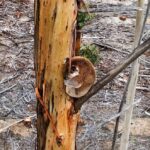The appointment of Murray Watt as the new Federal Environment Minister has triggered intense criticism from Australia’s scientific and environmental communities. Many view this decision as yet another sign that the Albanese Government prioritizes industry over environmental protection. Critics argue the move sends a disheartening signal to those fighting to safeguard biodiversity and combat climate change.
Environmental organizations wasted no time condemning the choice. The Bob Brown Foundation was quick to voice widespread public outrage. Founder Bob Brown declared:
“It’s a kick in the guts for every nature-loving Australian … Watt backs native forest logging, salmon cage pollution, woodland clearance of two million hectares in five years and koala killing, as well as more global heating and coral bleaching.”
While environmentalists express deep concern, industry voices have welcomed the appointment. According to WoodCentral publisher Jason Ross, anonymous Labor Party insiders called Watt’s appointment “sensible”—highlighting a clear alignment with industrial priorities. The fact that a former forestry minister now leads the country’s environmental agenda is seen by many as a conflict of interest.
Prime Minister Anthony Albanese made it clear that industry would be a key focus moving forward. When speaking about the upcoming environmental watchdog, he remarked:
“I want a federal EPA [Environment Protection Australia] that supports industry but also supports sustainability.”
He went further by stressing the urgency of expanding the housing supply, stating:
“We have a clear mandate to build more housing. The key is supply. You know, get out of the way and let the private sector build it.”
In this context, “supply” is widely interpreted as code for more timber extraction, a move that environmentalists warn could escalate deforestation and damage to ecosystems. These comments reveal a clear prioritization of development over sustainability and underscore the government’s broader pro-industry approach.
Watt’s own understanding of sustainability—expressed in his 2022 remarks to the Australian Farm Institute—centers on economic resilience, not ecological balance. He explained:
“Sustainability to me involves sustaining and maximising returns from the natural resources that underpin primary production.”
This industry-centric perspective has raised serious red flags. For many, it signals that corporate profits may take precedence over protecting Australia’s natural heritage. Watt’s role in launching the $100 million Australian Forest and Wood Innovations (AFWI) program only amplifies these concerns.
In announcing AFWI, Watt stated:
“Establishing AFWI was an election commitment, which we are proud to deliver and forms part of our record $300 million investment in the Australian forestry and forest product sector.”
He added:
“This program will support sustainable forestry, while also helping to deliver a future made in Australia… unlocking the full potential of wood as the ultimate renewable material.”
Despite its title, critics argue that the program’s goals appear more aligned with boosting forestry productivity than conserving ecosystems. Alarmingly, AFWI’s advisory committee includes no independent scientists or environmental NGOs—only industry representatives. This suggests that the program may lack the scientific oversight necessary to ensure environmental integrity.
Meanwhile, the rate of deforestation in Australia remains among the highest in the world. According to the Wilderness Society, over 7.7 million hectares of bushland—an area the size of Ireland—were cleared between 2000 and 2017. The group states:
“Research shows that in 2012, just 50 per cent of Australia’s forests remained intact compared with pre-colonisation. Since then, millions more hectares of forests found nowhere else on Earth have been logged, cleared and burnt.”
This unprecedented destruction is rapidly pushing species like koalas and greater gliders toward extinction. Despite these alarming trends, neither major political party mentioned biodiversity loss in their recent federal election campaigns.
Renowned scientist Professor David Lindenmayer, a global expert in biodiversity conservation, has warned of the irreversible damage caused by continued logging. He wrote:
“The science is clear — logging fragments ecosystems, removes critical nesting sites, and pushes species towards extinction.”
He further explained:
“The recovery of biodiversity following wildfires is severely impaired when forests have been subject to repeated previous disturbances, including past logging.”
The economic rationale for continued native forest logging is also under scrutiny. Lindenmayer added:
“Public funds continue to prop up a native forest logging industry that degrades water supplies, biodiversity, and carbon stores — all of which economic accounting studies have shown have significantly higher long-term value than native forest logging.”
Despite these scientific warnings, Labor Governments—both federal and state—continue to ignore mounting environmental and public concern. This has prompted comparisons to Trump-style governance, where industry lobbying and development projects dominate political agendas.
The evidence of inaction is widespread. The proposed Great Koala National Park in New South Wales remains theoretical, as koala habitats continue to be logged. In Victoria, the helicopter shooting of over 1000 koalas set a new low for environmental policy. In Queensland, large-scale urban expansion continues at the cost of natural habitat, placing Labor and Liberal state governments in ideological alignment on issues of ecological destruction.
The re-election of Albanese and the continuation of industry-aligned environmental policies signals a dark period for conservation in Australia. Critics argue that the country’s most iconic species, unique ecosystems, and fragile biodiversity are under unprecedented threat.
Environmental groups and scientists are calling for urgent reforms, independent oversight, and meaningful action to reverse the damage. They warn that without decisive intervention, Australia could face a future marked by ecological collapse and irreversible loss.
The phrase “New environment minister a win for industry but a loss for environment” encapsulates the deep divide in Australia’s environmental trajectory. Unless priorities shift away from short-term industrial gain toward long-term sustainability, the country risks losing its most valuable natural treasures—forever.






